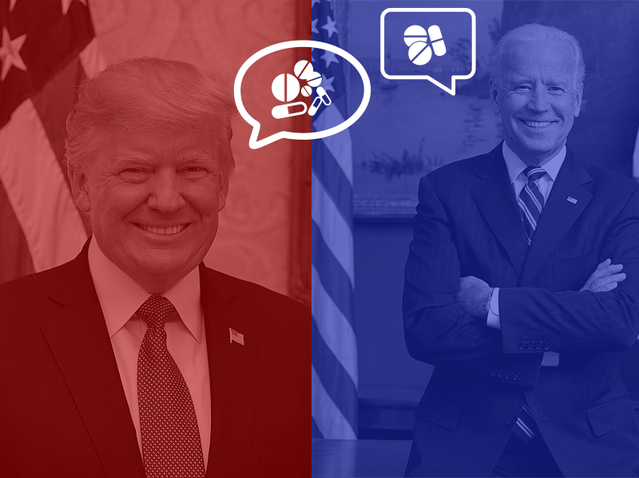President Donald Trump
Critiquing Politicians: Let's Leave Drugs Out of It
We can hold politicians accountable without commenting on drug use.
Posted October 2, 2020

This past week, we all witnessed what is being called the "worst presidential debate" in American history. During the debate, President Trump made a comment about Hunter Biden's drug use.
“Hunter got thrown out of the military. He was thrown out, dishonorably discharged for cocaine use—he didn’t have a job until you became vice president, and once you became vice president, he made a fortune," Trump said about the younger Biden.
Biden responded with a quote that likely resonated with many Americans who have family members who are dealing with addiction.
“My son, like a lot of people, like a lot of people we know at home, had a drug problem,” Biden said. “He’s overtaken it. He’s fixed it, he’s worked on it, and I’m proud of him. I’m proud of my son.”
Beyond the jabs of the president on the debate stage, invoking drug use has become a popular way to hurl criticism at the behaviours of politicians. The day after the debate, Ana Navarro on The View described Trump's behaviour akin to that of a "crackhead" and then proceeded to "apologize to the crackheads for making such a comparison." After Donald Trump Jr.'s speech at the Republican National Convention, many asked how many lines of cocaine he had done earlier in the day. Of course, Trump Jr. himself has not been above such behaviour — calling Hunter Biden "a crackhead" on the Glenn Beck radio program.
As someone who grew up in Toronto, all of these comments are familiar to me. In 2014, it was revealed that our mayor at the time, Rob Ford, had used crack cocaine. This inspired a series of jokes that many, including myself, partook in under the rationalization that drug use was another thing to hold against a terrible leader. My opinions about the president are no secret to anyone who has browsed my Twitter — I believe he and the members of his administration have caused great harm to many people. But using drug use as a way to insult the president is counterproductive and hurtful.
For one thing, it excuses his actions by rationalizing his behaviour as a product of drug use. Drugs don't make people unsympathetic and devoid of empathy. They don't make people give racist speeches and imprison migrant children. Human beings are perfectly capable of being cruel on their own without the use of drugs. People who use drugs are saving lives every day; giving people naloxone, helping others use in safe injection sites; they are parents, siblings, children who care for others. This doesn't mean that people who use drugs are inherently virtuous and good, nor are they evil and terrible — they are people, with strengths and flaws like the rest of us.
Second, it perpetuates stigma and makes it harder for people to be open with their friends and family about their drug use. It makes it hard for them to be in environments where they can use safely and avoid an overdose, or get treatment. Perpetuating stigma also allows the failed drug war policies to continue unabated; continuing to equivocate drug use with a moral failing that needs to be corrected with the threat of incarceration or forced treatment. Some of the terms we use, like "crackhead," have a racist undertone to them and originate from the crack crisis that affected the Black community which received unsympathetic news coverage and crime bills in response.
Millions of Americans either use drugs or know someone who uses drugs or who has died from an overdose. If we are going to take steps to end the overdose crisis, it's time to stop talking about drug use as if it is a moral failing or a punchline.


